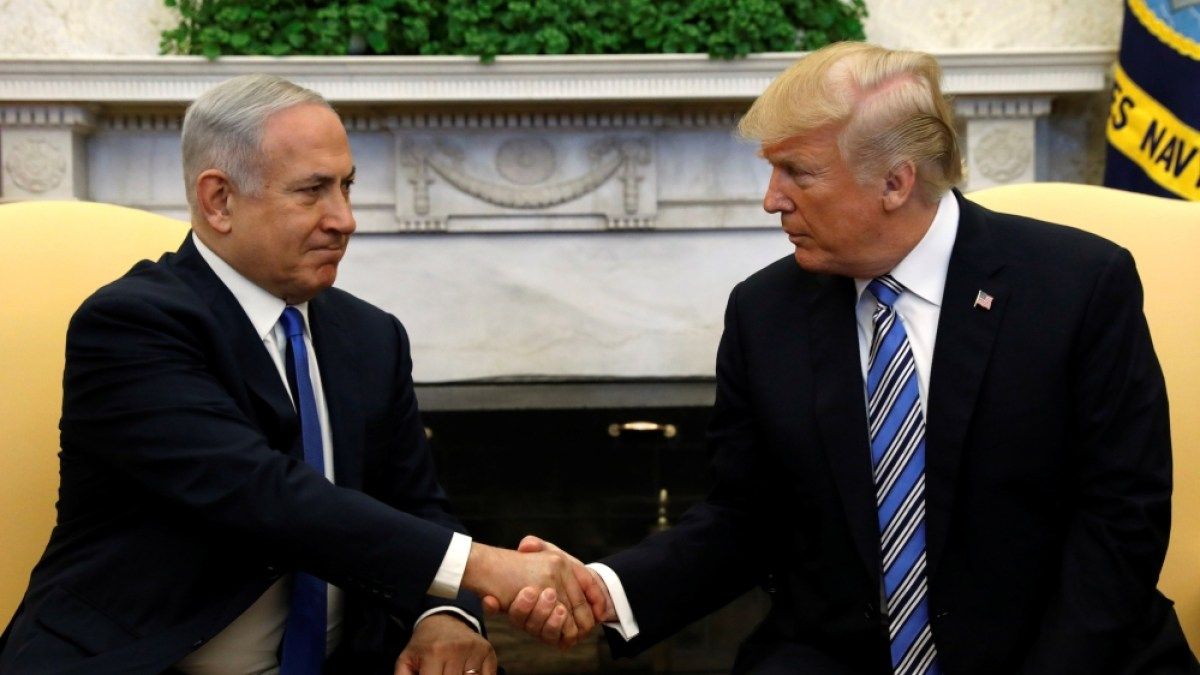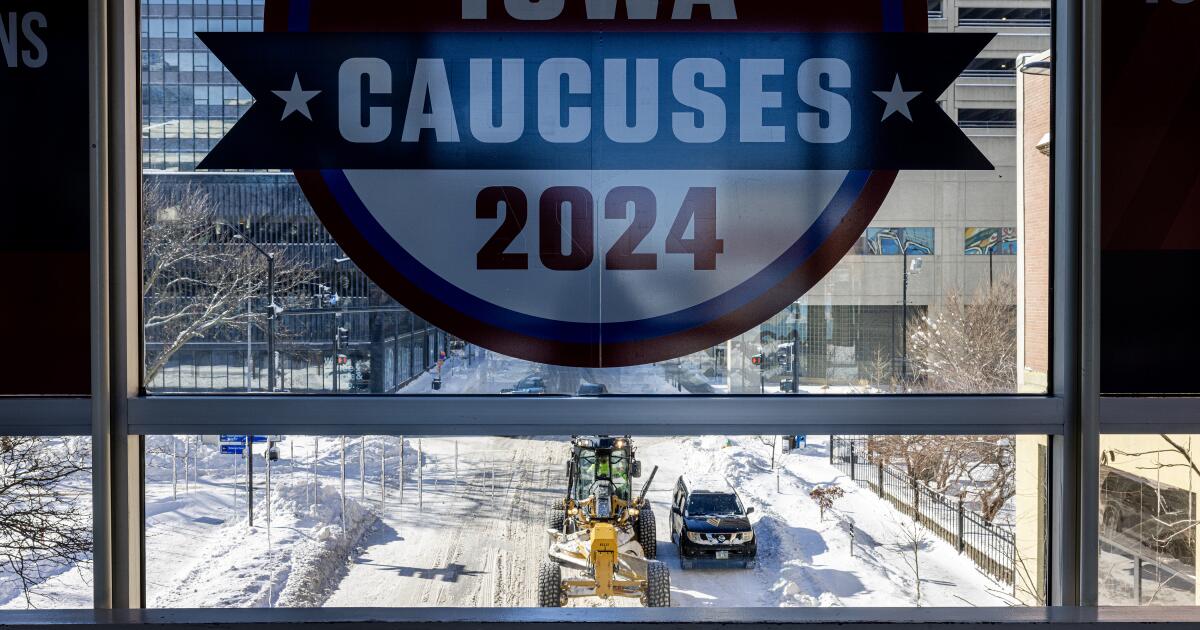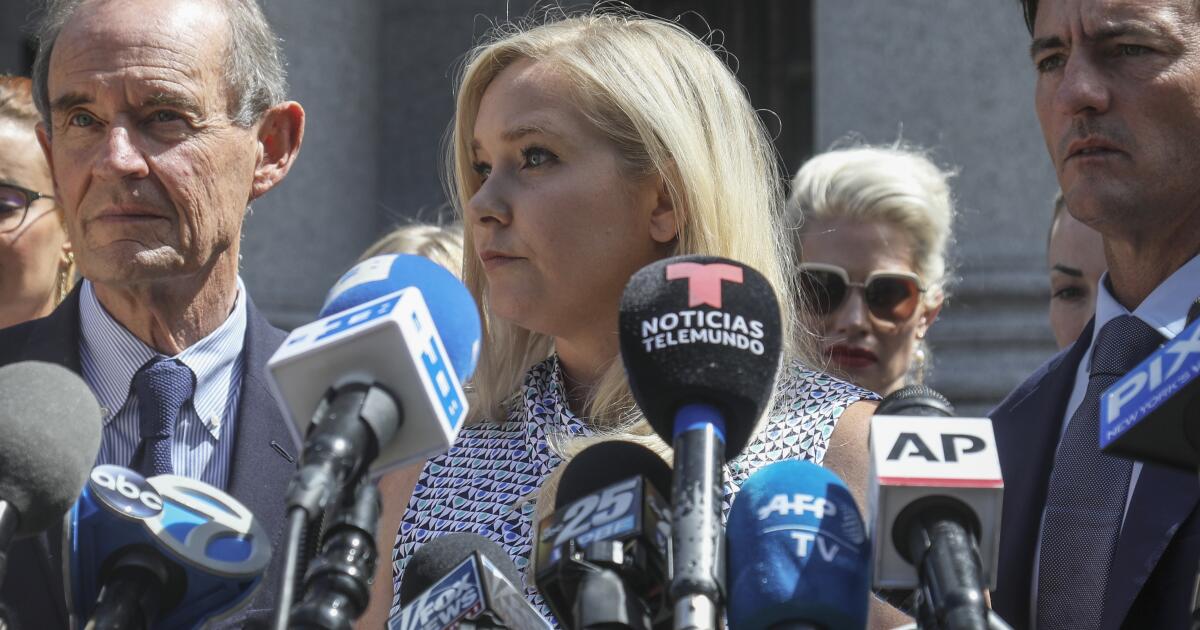In 2021, former US President Donald Trump told Israeli journalist Barak Ravid that his relationship with Benjamin Netanyahu had been strained after the Israeli prime minister congratulated Joe Biden for winning the 2020 US presidential election.
“Fuck him,” Trump said in the interview.
“I liked Bibi,” Trump said at the time. “I still like Bibi … but I also like loyalty.”
“Trump saw this as a betrayal,” Eyal Lurie-Pardes of the Middle East Institute told Al Jazeera. “Trump has been very supportive of Israel, but he has been critical of Netanyahu, attacking him for… [October 7] happening under his watch and being weaker than ever.
“Trump doesn't like to pick a losing partner,” he added.
Now, as the chances of Republican presidential nominee Trump — who was leading Biden in national polls before Biden dropped out of this weekend’s U.S. election — returning to the White House after the November vote increase, Netanyahu has been working hard to re-ingratiate himself with Trump, analysts say. The two enjoyed a close relationship during Trump’s tenure as U.S. president, and the Israeli leader has been making attempts to rekindle their personal relationship.
“Netanyahu, since the 1980s, has been building an alliance with the Republican Party, with the right and with Christian evangelicals,” Zachary Lockman, a professor of Middle Eastern and Islamic Studies at New York University, told Al Jazeera. “He sees these as his most enduring allies because the Democratic Party, as he well understands, includes elements that are increasingly critical of Israel, and Biden is a relic of the past.”
The Israeli prime minister often praised Trump, describing him in 2020 as “the best friend Israel has ever had in the White House.”
Trump often reciprocated compliments. In 2020, the then-US president handed Netanyahu a ceremonial gold key to enter the White House.
“You're a key to our country and to our hearts. And you've been an incredible leader over a long period of time,” Trump told Netanyahu.
Retaking Netanyahu's agenda
Netanyahu is set to visit Washington DC this week to address the US Congress on July 24. There is still no indication that he will meet with Trump, who survived an assassination attempt on July 13. But Netanyahu’s team has been trying to thaw relations with Trump for some time. Axios reported that a Netanyahu ally even travelled to Mar-a-Lago, Trump’s Florida residence, to read passages from Netanyahu’s book in which he praises the former president.
The Israeli prime minister also posted a video on social media addressing the recent assassination attempt on Trump.
“Like all Israelis, my wife Sara and I are shocked by the horrific assassination attempt on the life of President Donald Trump,” Netanyahu said in the video address. Trump later posted the video on his social media website Truth Social.
Even without Trump in office, Israel has received steadfast support from the United States. The Biden administration has consistently backed Israel with billions of dollars in military aid since October 7, even as the Palestinian death toll climbs to 39,090.
Media reports say Biden has complained about Netanyahu in private, but the US has never wavered in its material support for Israel.
Still, some on the Israeli right are dissatisfied with the current level of American support and hope a Trump presidency will remove any restrictions.
When Trump was president, he “supported … the fulfillment of Netanyahu’s agenda,” Lockman said. “He hoped that agenda would be resumed and that American pressure on Israel would end, even if it has been minimal and has not resulted in anything concrete. But Trump’s victory means for Netanyahu that he restores Israel’s ability to do whatever it wants.”
During his tenure as president, Trump recognized Jerusalem as Israel's capital and moved the U.S. embassy there from Tel Aviv, appointed an ambassador ideologically aligned with Israel's settler movement, and hosted the signing of the Abraham Accords, which led to the normalization of relations between Israel and four Arab states: Bahrain, the United Arab Emirates, Morocco and Sudan.

Trump will allow them to “finish the job”
In recent months, the Biden administration has been heavily criticized for its policies regarding Gaza. Mass student protests have erupted on American and international university campuses. According to polls, more than 40 percent of Democrats criticize Biden’s handling of the Gaza issue and numerous administration officials, including a senior figure in the State Department, have resigned over Biden’s policy toward the besieged Palestinian enclave. These critics have said Biden is complicit in what the International Court of Justice (ICJ) says could plausibly constitute genocide.
But inside Israel’s most right-wing government in history, there is criticism of Biden for entirely different reasons. And the criticism goes beyond Netanyahu to other right-wing figures, including National Security Minister Itamar Ben-Gvir, who reportedly said a captive deal should be avoided because it could help Biden against Trump.
“There is a difference between how American support is perceived by those inside and outside the Israeli government,” Lurie-Pardes said. “In the eyes of the Israeli right, American support is [Biden administration] “The US has always been reluctant to ship all requested ammunition, especially offensive weapons, and a shipment being held up is part of a new cycle here.”
The Biden administration suspended a shipment of weapons to Israel in early May over fears they would be used in the Rafah offensive. About half of that shipment was sent later in July, though the other half remains on hold over fears it could be used against civilians. In addition, Lurie-Pardes said, Biden’s rhetoric had shifted toward pressuring Israel to negotiate a ceasefire.
“The right has perceived that this does not give Israel the support it needs to finish the job. [in Gaza],” he said.
Sarah Leah Whitson, director of Democracy for the Arab World Now (DAWN), said Biden has been trying to balance his engagement with Israel by “throwing little bones” to critics of the US ally, such as sanctions on violent settlers.
“I think that would go away if Trump were elected, and the Trump administration would position itself more openly and sincerely as a supporter of Israel,” Whitson told Al Jazeera.
He added, however, that Trump would take a “firmer hand” in punishing Israel if it defies US demands, unlike Biden, who has failed to follow through on his warnings to the Israeli government against invading Rafah and blocking aid to Gaza.

Lifting of sanctions
If Trump comes to power next year, analysts expect him to implement or reverse some policies. While the Biden administration has been criticized for failing to hold Israel accountable for its violations of international law and high civilian deaths, it has applied sanctions to some settlers and settler organizations in the occupied West Bank.
Violence in the West Bank has spiraled out of control since October 7. Since then, Israeli forces and settlers have killed 513 people in the West Bank, according to the United Nations Office for the Coordination of Humanitarian Affairs (OCHA). In addition, on July 4, Israel approved the largest land grab in the West Bank in 30 years, according to Peace Now, an anti-settlement watchdog.
Critics have said Biden’s sanctions on settlers and settlements are insufficient. Biden, who announced on Sunday that he would not seek re-election, is expected to be replaced on the Democratic ticket by his vice president, Kamala Harris, who experts say will largely continue Biden’s policies toward Gaza.
However, a Trump presidency would likely remove sanctions against settlers altogether.
“There is a very high likelihood that if Trump were to return to office the sanctions would be lifted, even if many have described them as too little, too late, because the settlers are more violent than ever,” Lurie-Pardes said.
While the Biden administration has spoken out against maintaining Israel's presence in Gaza, Lurie-Pardes added that Trump's return to the White House could “lay the groundwork for future resettlement in Gaza and could be the way that Netanyahu can calm some of the statements made by [far-right ministers in his government] Ben-Gvir and Smotrich”.
“Things can definitely get worse,” Lockman said. Netanyahu and his “ideological allies on the right” could see a second Trump presidency as “a time to fulfill their agenda” by going after all their ideological enemies, “which could also include a war with Lebanon,” he added.
With additional reporting by Ali Harb.












